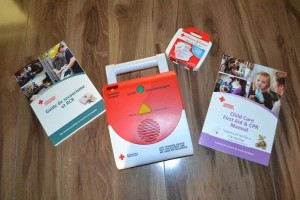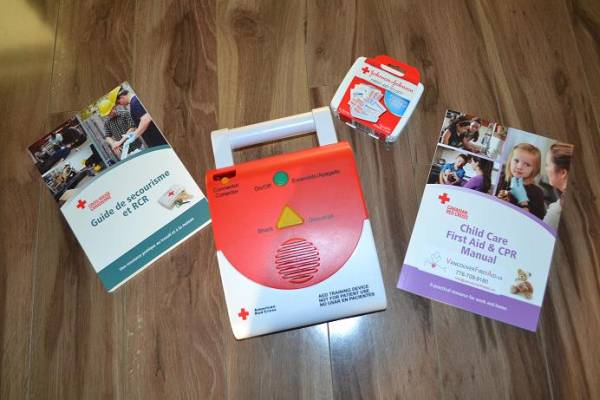Medical Problems, First Aid Kit and First Aid Management
Scuba diving is an enjoyable recreational sport but like every activity it comes with physical and health risks when divers go underwater with diving equipment.
Scuba diving is an enjoyable recreational sport for many sports. But
like every activity, it comes with a degree of physical and health risks when a diver goes underwater with the diving equipment. There are many different medical emergencies that can occur when a person is deep under water. These will be discussed later.
List Potential Medical Problems from Scuba Diving
There are many potential medical problems that may develop from scuba diving. These can include:
- Drowning
- Near drowning
- Secondary drowning
- Hypoxia
- Salt water aspiration syndrome
- Carbon monoxide poisoning
- Carbon dioxide poisoning
- Emphysema
- Lipid pneumonia
- Sudden chilling of the inner ear
- Burst or stretched eardrum
- Tooth squeeze
- Sinus squeeze
- Mask squeeze
- Suit squeeze
- Suit compression
- Lung squeeze
- Lung damage
- Pulmonary barotrauma: pneumothorax, interstitial emphysema, subcutaneous emphysema, and arteria gas embolism
- Sinus overpressure
- Middle ear overpressure
- Suit and BC expansion
- Decompression sickness, also called, the bends
- Nitrogen narcosis
- Acute oxygen toxicity or chronic oxygen toxicity
- High pressure nervous syndrome
- Hypothermia
- Frostbite
- Non-freezing cold injuries
- Muscular cramps
- Coral cuts or cuts from sharp edges of rocks, metals, etc.
- Stinging hydroids, jellyfish and other marine animals
- Stingrays
- Fish and invertebrates with venomous spines
- Venomous octopus
- Very large groupers
- Sharks
- Crocodiles
- Electric shock
First Aid Kit for Scuba Diving
It is necessary to have a first aid kit prepared for all possible types of scuba diving emergencies that may occur. More items may be added to the list below, which can include the following:
- Dive and Travel Medical Guide
- Dive safety slates
- Oronasal mask
- CPR/ choking/ drowning information
- 1 CPR Face Shield, Laerdal
- Wound Management — wound care, antiseptic cleaning, topical antibiotic
- Shock Management
- Dressing, gauze, sterile
- Dressing, non-adherent, sterile
- Eye pads
- Bandages, conforming gauze
- Bandage fabric
- Nitrile gloves
- Wound Closure Strips
- Syringe
- Tape
- Cotton tips
- Sterile scissors
- Splinter picker/ forceps or shaving kit
- Safety pins
- Eye wash
- Cold pack
- Hot compresses
- Soap
- Vinegar or rubbing alcohol
- Fresh water
- ACE bandage
- Medications: pain medications, antihistamines, gastrointestinal medications, etc.
- Personal medications, such as asthma inhalers, epinephrine injections, etc.
First Aid Management for Scuba Diving
It is necessary to be observant for symptoms of any of the possible medical emergencies that may arise. If an individual is unsure if he/ she is experiencing symptoms, it is necessary to administer appropriate first aid. In case of a scuba diving emergency, the following steps are generally required:
- If the person is still in the water, get the individual safely out of the water.
- Do the three C’s. Check for any injuries, symptoms, the scene and the number of persons involved. Call for emergency medical services if needed, such as in cases of allergic reaction or anaphylaxis. And give care to the injuries until professional help arrives.
- Administer appropriate first aid in all situations.

Disclaimer: This article does not provide medical advice and should not be substituted for formal training. Seek medical attention when necessary. It is important to recognise medical emergencies at all times to avoid complications from developing. To learn more about to how to properly manage scuba diving emergencies, enrol in First Aid Courses and CPR Courses with St Mark James Training.
Online Sources:
http://en.wikipedia.org/wiki/List_of_diving_hazards_and_precautions
https://www.diversalertnetwork.org/dive-store/?id=61
http://www.scubadiving.com/training/basic-skills/first-aid-divers

